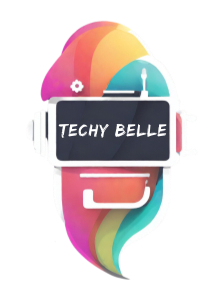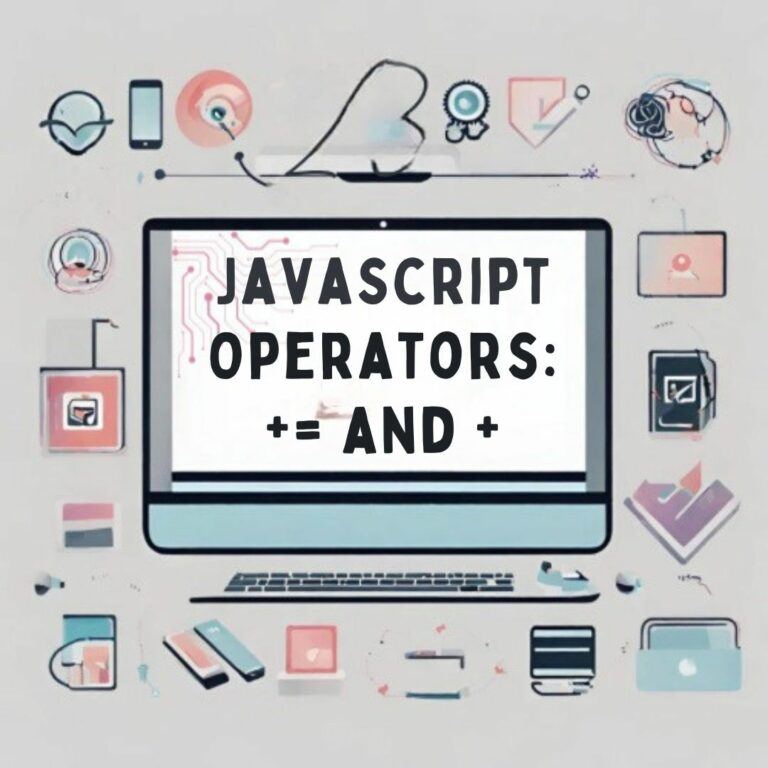Where Can I Learn SQL? A 7-Tip Comprehensive Guide for Tech Newbies
Hey there, fellow tech enthusiasts! In this post, I’m thrilled to dive into a topic that has been an absolute game-changer in my tech journey – Structured Query Language a.k.a SQL! As someone passionate about all things tech, I can’t wait to share my personal experiences, tips, and the sheer excitement that comes with wielding the power of SQL.
TL;DR: Where Can I Learn SQL?
Best Platforms:
- DataCamp for hands-on SQL courses
- W3Schools SQL Tutorial
- SQL Programming Basics w/ GeekPack Collective
For Advanced Skills:
- Explore books, tutorials, and advanced courses on edX and LinkedIn Learning.
Community and Accountability
- Geekpack Collective for access to highly rated Udemy SQL courses and a supportive tech community.
Let’s demystify databases together! ??
Picture this: at the end of 2022, I found myself in a job I absolutely hated and desperate to finally dip my toes into the world of remote tech work. I only had a little experience with SQL from a Database Administrator (DBA) course I had taken 6 years prior. I’ve now been in my current role as a Functional Analyst for a whole year and I’m learning so many things I can do with SQL. It’s not just as a language but as a key to unlocking a whole new dimension of understanding and manipulating data.
1. The Importance of SQL in Today’s Tech-Driven World
In a world fueled by data, Structured Query Language (SQL) stands as a foundational skill that every tech enthusiast should embrace. In this article, we’ll explore the significance of SQL in the tech industry, share personal insights on its importance, and guide you on a journey to mastering this essential tool.
Why SQL Matters in the Tech Industry
SQL, the language designed for managing and manipulating relational databases, is the backbone of countless applications and systems. Its role in handling data is indispensable, making it a must-have skill for tech professionals. From database administrators to software developers, SQL proficiency opens doors to a myriad of opportunities.
Where to Start: Choosing the Right SQL Learning Platform for You
Embarking on your SQL learning journey begins with choosing the right educational platform. Let’s delve into the factors that should influence your decision and review some of the top platforms available.
Factors to Consider When Choosing a SQL Learning Platform
Before diving into the SQL ocean, consider these factors:
- Cost: Evaluate your budget and explore both free and paid platforms.
- Teaching Style: Different platforms employ various teaching methods; find one that aligns with your learning preferences.
- Course Content: Ensure the platform covers a comprehensive SQL curriculum.
2. Top Educational Platforms for SQL
A.DataCamp’s Learn SQL Pathway

- Interactive and beginner-friendly
- Hands-on projects for practical application
- Free and premium options available
B.W3Schools SQL Tutorial

- Beginner Friendly Learning
- Comprehensive and Concise Content
- Free, Accessible Anytime, Anywhere
C.GeekPack Collective – SQL Courses, Accountability, and Community

- Comprehensive courses covering SQL basics to advanced queries
- No more feeling stuck if you buy a course you don’t like…just find one that fits
- Learn how to implement SQL and other tech skills into money-making making skills!
3. Taking the First Step: How to Begin Your SQL Learning Journey
Taking the First Step: How to Begin Your SQL Learning Journey
With the right platform in mind, let’s delve into the practical steps to ensure a smooth and effective start to your SQL learning journey. The initial phase is crucial for setting the tone of your learning experience.
Setting Up Your Learning Environment
Creating an environment conducive to learning is the first stride toward SQL proficiency:
Download and Install a SQL Database System:
- Choose a SQL database system compatible with your learning goals. Popular choices include MySQL, SQLite, and SQL Server Management Studio (SSMS).
- Follow the step-by-step installation guides (I recommend enrolling in a course and using the recommended environment) provided by the respective platforms to set up the database system on your computer. This hands-on experience is vital for practical learning.
Choose a Comfortable Workspace:
- Designate a dedicated workspace tailored to your comfort. Ensure it is well-lit and organized, fostering a positive learning environment.
- Minimize distractions in your workspace. Silence unnecessary notifications and create a space that allows you to focus solely on your SQL learning tasks.
Creating a Study Schedule and Setting Achievable Goals
Structured learning is the backbone of mastering SQL. Here’s how to create a roadmap for success:
Establish a Realistic Study Schedule:
- Assess your weekly commitments and allocate dedicated time slots for your SQL studies. Consistency is key, so choose a schedule that aligns with your availability.
- Consider the most productive times of the day for your study sessions. Whether it’s early mornings or late evenings, find what works best for you.
Break Down the Learning Process:
- SQL encompasses various concepts, from basic queries to complex joins. Break down the learning process into manageable goals to avoid feeling overwhelmed.
- Begin with foundational elements like understanding the SELECT statement and gradually progress to more intricate topics such as JOIN operations. This incremental approach ensures a solid understanding of each concept before moving on.

Mastering Basic Queries:
- Start by mastering basic SQL queries, focusing on retrieving data from a single table.
- Practice crafting SELECT statements with conditions, sorting results, and limiting the number of rows returned.
Understanding Joins:
- Progress to understanding JOIN operations to combine data from multiple tables.
- Explore INNER, LEFT, RIGHT, and FULL JOINs to grasp the various ways data can be linked.
4. Beginners’ Tips and Tricks to a Smooth SQL Learning Experience
Beginners’ Tips and Tricks to a Smooth SQL Learning Experience
Navigating the initial challenges of learning SQL is part of the journey. Arm yourself with these practical tips and tricks to ensure a smooth and rewarding experience:
Practice Regularly with Real-World Scenarios:
- Treat SQL as a practical skill. Regularly engage in real-world scenarios, crafting SQL queries that mimic situations you might encounter in a professional setting.
- Consider creating mock databases or using sample databases available online to simulate actual working conditions. The more hands-on experience you gain, the more confident you become in applying SQL concepts.
Engage with Online Forums and Communities for Support:
- SQL has a vibrant and supportive community of learners and experts. Join online forums, such as Stack Overflow or dedicated SQL learning communities, where you can seek guidance, ask questions, and share your experiences.
- Participate actively by answering questions from other learners. Teaching is an effective way to solidify your own understanding of SQL concepts.
Don’t hesitate to Revisit Concepts; Repetition is a Powerful Learning Tool:
- SQL involves a multitude of concepts, and it’s completely normal to find some challenging initially. Don’t rush through; take the time to revisit and review concepts.
- Repetition is a powerful learning tool. Go back to the basics regularly, reinforcing your understanding of fundamental concepts like SELECT statements, filtering, and sorting. This not only helps in retention but also builds a strong foundation for advanced topics.
Utilize Online Learning Platforms for Interactive Practice:
- Leverage the interactive features of online learning platforms, such as W3Schools or DataCamp. These platforms often provide interactive coding exercises that allow you to apply your SQL skills in a guided environment.
- These exercises often come with instant feedback, helping you understand where you went wrong and reinforcing correct practices.
Create SQL Projects to Apply Knowledge:
- Take your learning a step further by working on mini-projects. Choose a topic or scenario that interests you and build a database from scratch, applying SQL queries to manipulate and extract meaningful insights.
- Projects not only reinforce your SQL skills but also provide tangible proof of your abilities, which can be valuable for showcasing your expertise in future endeavors.
Explore SQL Challenges and Competitions:

- Engage in SQL challenges and competitions available on platforms like HackerRank or LeetCode. These challenges often present complex scenarios that require creative SQL solutions.
- Competing against others or challenging yourself with advanced problems can be both fun and intellectually stimulating.
By incorporating these tips into your SQL learning routine, you’ll not only overcome initial challenges but also build a strong foundation for continuous improvement.
5. Learning SQL: The Challenges and How to Overcome Them

Learning SQL: The Challenges and How to Overcome Them
Even the most seasoned learners face challenges. Let’s delve into common obstacles encountered when learning SQL and effective strategies to overcome them.
Sharing Personal Challenges Encountered When Learning SQL
I’ve been learning SQL at work for about a year, and there’s always something new to discover every day. The big challenges for me are figuring out how to write different types of stored procedures, knowing when to use them, finding the right info, and getting the hang of different ways to write queries.
Here’s a trick I use: I write down the problem I’m working on in simple words. I also draw out different parts of the problem. This helps me step back and see the problem visually, outside of the database. It’s like a little roadmap that makes solving the problem easier.
Syntax Overwhelm:
- Adapting to SQL syntax can be intimidating, especially for beginners.
- Overcome syntax challenges by engaging in regular, hands-on practice. Break down queries into smaller components, focusing on specific syntax elements until they become second nature.
Conceptual Hurdles:
- Understanding relational database concepts can pose a significant challenge.
- Simplify complex ideas by incorporating visual aids and real-life examples into your learning process. Visualization enhances comprehension, making abstract concepts more tangible.
Advice and Methods to Solve Common SQL Learning Difficulties
Debugging Skills:
- Developing effective debugging strategies is crucial for troubleshooting SQL code.
- Tap into online resources like Stack Overflow, where you can seek advice and solutions from the SQL community. Embrace debugging as an integral part of the learning process.
Performance Optimization:
- Learning techniques to optimize SQL queries is essential for efficient database management.
- Dive into the intricacies of query optimization and analyze query execution plans. Understanding how queries are processed allows you to enhance performance and streamline your SQL code.
Highlighting the Importance of Perseverance and a Positive Mindset
Mastering SQL is a journey, not a sprint:
- Embrace Mistakes: Treat mistakes as valuable learning opportunities. Every error is a step toward improvement.
- Celebrate Small Victories: Acknowledge and celebrate your achievements, no matter how small. It fosters a positive learning environment.
- Cultivate a Positive Mindset: Approach SQL learning with a positive mindset. The challenges you encounter are stepping stones to becoming a proficient SQL practitioner.
Expanding Your Knowledge: Advanced SQL Resources
Once you’ve conquered the initial challenges, it’s time to elevate your SQL expertise. Explore advanced topics with the following resources:
- SQL Books and Tutorials:
- Delve into advanced SQL concepts with resources like “SQL Performance Explained” by Markus Winand.
- Explore online tutorials from SQL experts and practitioners offering in-depth insights into advanced SQL techniques.
- Advanced SQL Courses:
- Platforms like edX offer advanced SQL courses from top universities, providing a structured approach to mastering complex SQL concepts.
- LinkedIn Learning offers specialized modules that cover advanced SQL topics, enhancing your skills in database management and optimization.
By overcoming challenges, cultivating a positive mindset, and exploring advanced SQL resources, you’re well on your way to mastering SQL and unlocking its full potential in your tech journey. Happy querying!
6. Where to Find Resources for Studying Advanced SQL Topics
SQL Books and Tutorials:
- Learn SQL in a Weekend by Antonio Padial Solier
- Online tutorials from SQL experts and practitioners
Advanced SQL Courses:
- edX offers advanced SQL courses from top universities
- LinkedIn Learning provides in-depth modules on advanced SQL concepts
Tips on How to Leverage These Resources for Maximum Benefit
Create Real Projects:
- Apply advanced concepts to real-world projects
- Build a portfolio showcasing your skills
Engage in Online Communities:
- Participate in forums and discussions
- Seek mentorship from experienced SQL professionals
7. Leveraging SQL Skills for Career and Income
As we conclude our SQL journey, it’s crucial to understand how SQL proficiency can shape your career and financial prospects.
Database Administration Roles:
- Manage and optimize databases for organizations
- Ensure data security and integrity
Data Analyst Positions:
- Analyze and interpret data for informed decision-making
- Contribute to business intelligence initiatives
Exploring Potential Avenues for Income Through SQL Skills
Freelancing Opportunities:
- Offer SQL consulting services on platforms like Upwork
- Bid on projects that align with your expertise
Teaching and Training:
- Create and sell SQL courses on platforms like Udemy
- Conduct workshops and training sessions for aspiring SQL learners
My Personal Journey and How I Have Applied My SQL Skills
Sharing a glimpse into my journey:
- Applying SQL skills in my role as a Functional Developer
- Leveraging SQL for data-driven decision-making
- Continuous learning and staying updated with evolving SQL trends
In conclusion, SQL is not just a language; it’s a gateway to a world of possibilities in the tech industry. Whether you’re a beginner or aiming for advanced expertise, embracing SQL can transform your tech journey. From choosing the right learning platform to overcoming challenges and exploring career opportunities, this guide is designed to empower you on your SQL learning adventure.
Happy querying, and may your SQL skills unlock doors to a thriving tech career!







